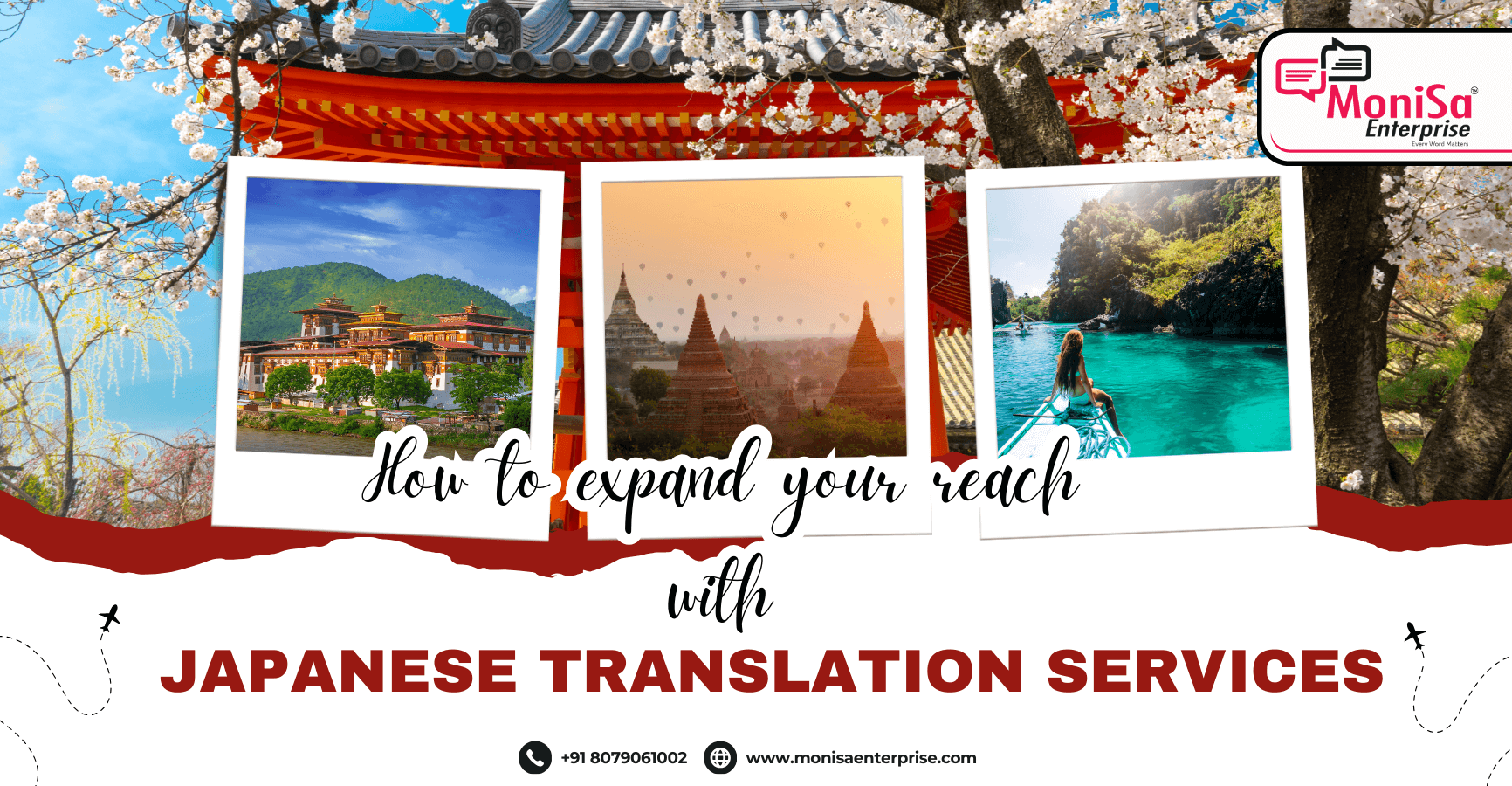We all know Japan as the land of manga and anime. Characters such as Pikachu and Gudetama have been immortalised in global media. The success of these franchises is not just because of how lovable they are, but also because of good marketing. Indeed, Japan is often known as a land of fresh opportunities and is a gateway to expanding your business into the Asian economy. Let’s get to know why Japanese translation services are necessary for a business.
3 reasons why Japanese translation services can expand your business:
Buying and selling go hand in hand, but what facilitates this exchange is speaking a common language. Entering the Japanese market is a great way to expand your business to the rest of Asia, but mastering the Japanese language is your first step to success. Here are 3 reasons why :
1. The Japanese Culture of consumer loyalty
The Japanese are people who value consumer loyalty and will furiously stand by their choice among different brands. However, to win the trust of this audience, it is important to reciprocate their effort. It is necessary to invest your time and effort into properly translating all documents and infographics regarding your product.
Moreover, sharing the language helps build a unique connection between the seller and buyer. Keep in mind that since Japanese people are looking for a long-term business partnership, rather than a surface-level transaction, proper language helps your customer communicate their needs. Making mistakes in Japanese translation can be a reason why your customers change to another brand.
With perfect Japanese translations, you are one step closer to guaranteeing customer loyalty, and hence one step closer to building a network that values your product and values your business.
2. Translation vs Transcreation
Stepping into the Japanese market helps you understand why Japanese translation can often be interpreted as “translationese”. In other words, translationese is when the word-for-word translation of a text leads to an ungrammatical or awkward-sounding result.
This will be a problem seen not only in Japan but also in many other Asian markets. Since you might be used to a different culture in the West, getting familiarised with Asian calendar events, holiday habits, family traditions and more can help avoid translationese.
Rather than simply translating your product from one language into another, incorporating aspects of Asian culture and tradition gives you the power to transcreate. Transcreating means “Translation + Creating” and refers to adapting your message and product pitch altogether. For example, while in the West Christmas is considered to be a family event, while New Year’s is more about letting loose and having fun, the opposite is true in Asian countries. Familiarising yourself with such differences is why Japanese translation services can ensure your success while expanding your business.
3. Understanding the Asian demographic
While Japan is just one of the several countries representing the Asian population, the power it holds lies in this same statement. The Asian market is unique from the Western market in two key areas. Firstly, while in countries such as the UK and the USA, baby boomers refer to people who are currently in their 50s and 60s, the boom in the Asian population is much more recent. Hence, the baby boomers in the East refer to people who are currently in their 30s and 40s and at the peak of their consumption cycle.
Targeting this growing population starting with one country can be your key to success. Secondly, the Eastern economy has not suffered from the same economic shocks and recessions as in the West, which makes it a commercially profitable market.
Now what we are about to say next must be already apparent to you. Without good communication, you simply cannot relate with your target audience! Why Japanese translation services are important, is because they help you understand the purchasing wants and cultural restrictions of your targeted customer profile. By connecting with the demographic in Japan, you are taking a step towards understanding the Asian populace as a whole.
3 reasons why Japanese translation services can be tricky:
Many businessmen compare the market to a game of chess- grab the wrong opportunity and you may end up losing the game. While you might be eyeing the quickly growing Asian market, simply localising your product to another language won’t do the trick. The Japanese language industry is unique, and a company entering this new market must beware of these three factors
1. Avoid translating word for word:
The Japanese language has three scripts, namely Kanji, Hiragana and Katakana. While Kanji describes imagery based on the positioning of individual strokes, Hiragana and Katakana scripts spell out words. Different scripts make the language more complex, and it is easy to understand why all Japanese words cannot be taken for their literal meaning.
An example would be the word いただきます or Itadakimasu. The word is used before beginning a meal, and a similar concept in the West would be saying “Grace”. While a literal translation from Japanese to English gives us the meaning of “Thank you for this meal” the sentiment behind saying Itadakimasu goes beyond just showing appreciation.
Instead, it takes from the Buddhist ideology of showing respect to all the living beings who have poured their energy into preparing the bowl of food in front of you. While Itadakimasu is a common word in Japanese culture there is no direct English translation, which is why Japanese translation word by word is often inadequate.
2. Aim for perfection:
As the saying goes, when in Rome, do as the Romans do. The Japanese culture revolves around being as close to perfection as possible, and it might come as a shock to see the efficacy and diligence with which citizens work. Of course, this means that there is no flexibility for foreign companies as well. Meeting the high standard for linguistic perfection is a necessity- it also comes with the consequence that even a slight variation from the commonly spoken Japanese lingo will not be accepted by your audience.
Fortunately, the solution to this problem is quite simple. By hiring native speakers you can be assured of both cultural as well as linguistic accuracy. You can now avoid mistakes such as not maintaining the tone and societal norms of speaking Japanese. Remember, mixing up formal and informal tones is an absolute no-no!
3. Do not depend upon tools
While CAT tools exist, all the nuances of the Japanese language must have made you realise why Japanese translation cannot be performed by a machine. Without technical support, Japanese translations miss out on benefits such as neural machine translation technology. Instead, human translators must carefully recheck and edit the document. This raises both the cost and the time taken till delivery.
Now that you know how and why Japanese translation services can help you expand your business it is time to go set your plans into action. But wait, still wondering where you’ll find the perfect language service provider to help achieve your goals? MoniSa Enterprise brings you the best of global translation standards with our team of professionals trained in over 250 Asian and major European languages. Reach out to get a free quote today!
Frequently asked questions (FAQs):
1) Why Japanese translation is so hard?
While Japanese may seem like a difficult language at first, you will soon realise that this issue arises since there are not many English words which can be used as direct replacements. Translating from Japanese to English properly requires you to translate not only the text but also the emotion behind the word.
2) Why Japanese translation services should be done by professionals?
A professional Japanese translator can accurately translate not only the written text but also the emotion behind complex Japanese terminology. Moreover, a professional offers greater linguistic flexibility since they are familiar with different dialects and scripts.
3) Is Japan a good place to expand my business?
Yes! As the third largest Asian market, Japan is an excellent starting point to expand your business. In particular, the country boasts of a booming gaming and software industry, with a value of USD 29B in 2021, which makes up 16% of the global market.
4) Why do Japanese translations need to be perfect?
The Japanese culture aims for perfection, even in the spoken and written language. There is no flexibility apart from commonly accepted variations, which is why people from different regions who speak different dialects may find it difficult to understand each other. With such a high linguistic standard, Japanese translations need to be perfect to create the best impact on your audience.
5) What is the most common English-to-Japanese translation?
If you are a manga or anime fan, chances are you are already benefitting from Japanese translation services. As of 2021, the anime industry is valued at USD 25B, with an impressive CAGR of 9.5% from 2023-29.


